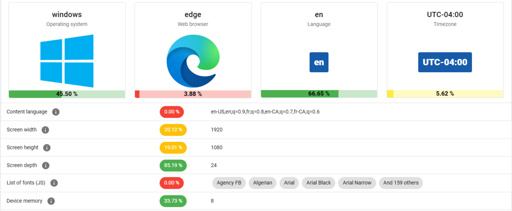- cross-posted to:
- [email protected]
- cross-posted to:
- [email protected]
Amidst the glossy marketing for VPN services, it can be tempting to believe that the moment you flick on the VPN connection you can browse the internet with full privacy. Unfortunately this is quite far from the truth, as interacting with internet services like websites leaves a significant fingerprint. In a study by [RTINGS.com] this browser fingerprinting was investigated in detail, showing just how easy it is to uniquely identify a visitor across the 83 laptops used in the study.
As summarized in the related video (also embedded below), the start of the study involved the Am I Unique? website which provides you with an overview of your browser fingerprint. With over 4.5 million fingerprints in their database as of writing, even using Edge on Windows 10 marks you as unique, which is telling.



Some, but only if you’re using a very common device (i.e. Dell Latitude) with Windows. Browser fingerprinting gives up hardware specs, so hiding by blending in only works when your hardware is hard to pin down.
Use a browser that hides hardware specs, like Mullvad or Libreworlf. Even Brave is ok.